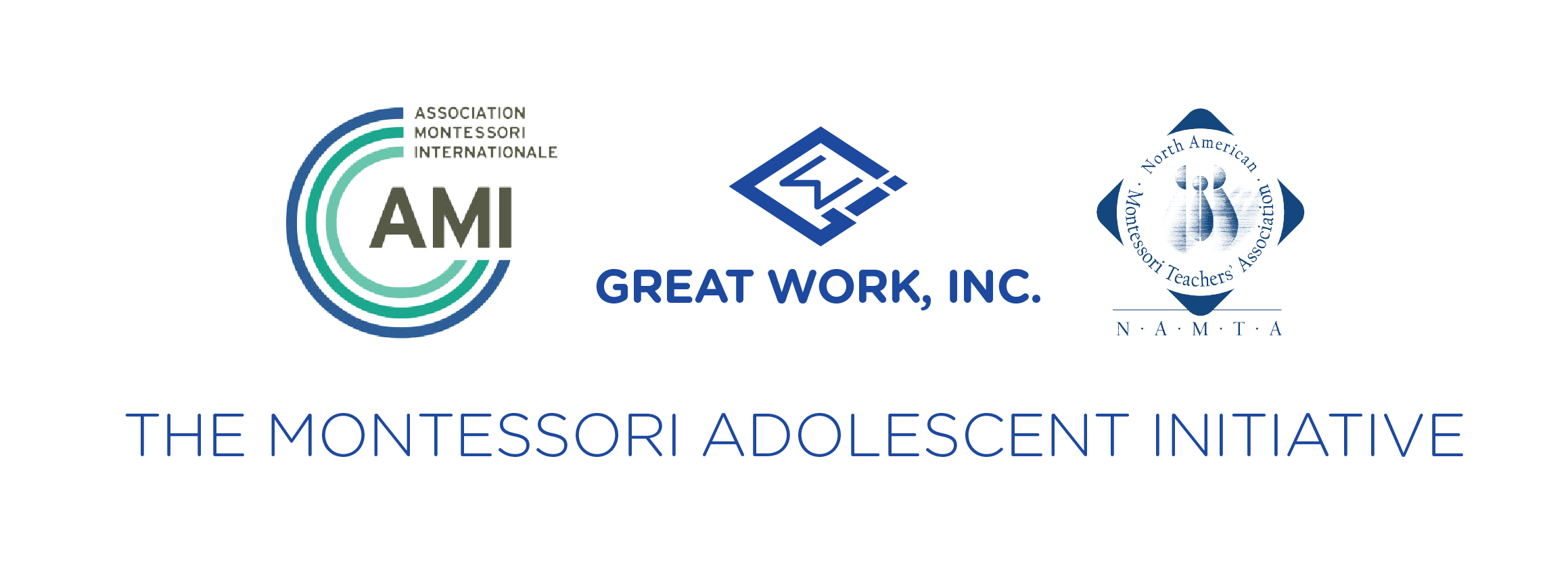Deep Dive on Characteristics of an Adolescent
Characteristics of the Adolescent
(based on Laura Marchioni’s lecture in Milan in March 2018)
Physical
Changes in body – in different stages – the preparation, the blooming, the perfection
There are very intensive changes, which can be compared to the changes the new born has to go through. But the new born needs to change rapidly and the adolescent does not change with the same speed. Instead it is a long period of change, six years approximately.
Now the adolescent needs to complement his education, which does not pay attention to the physical and psychological needs of the adolescent.
As the body changes, as there are physical changes, the body concentrates on this and therefore the adolescents do not have the energy left to focus on study.
Physically the adolescent is weak, thus the need of open air and a different environment, an environment that offers practical work to strengthen the mind and the body.
There is a complete change of the individual, but it happens step by step, one part at the time.
Nature works with change gradually and only reaches its goal at the end.
Today we know that many illnesses have their origin during the period of puberty.
Psychological
(Here Dr Montessori uses the same terminology as Carl Jung.)
Change of the psyche, there is a psychic unrest, a confusion and acting without reason.
There are emotions the adolescent himself do not understand.
The adolescents have very delicate minds.
This needs to be paid attention to because it will determine the future use of his intelligence.
The personality develops very quickly, important that all aspects of it develop equally.
Intellectually the adolescent seems weaker, which is because of the great physical change taking place. Intellectual work is not suitable for this period in time, therefore important that the intellect is satisfied in the previous period. But, the adolescent needs to practice what has been accomplished and learned earlier, what the adolescent is prepared for.
There is a difficulty to focus, to concentrate, an unwillingness to obey (all typical of the second plane child). But we must not judge the adolescent.
There is a longing for a new life, a grander life, but the adolescent does not know anything about this new life.
The adolescent is not yet aware of who he is and what he can do. He needs help to get to know himself.
He must not be addressed or treated as a child any more. He is in a new stage of life.
(Cf. Winnicott)
Social
Wants to free himself from the family, must overcome the relationships which is there in the family and move on, so that nature can reach its goal. This is necessary for the adolescent.
The adolescent does not yet know his destiny.
Seems rebellious, but is confused and needs to orient himself to a new environment, a new world.
The adolescent is sensitive to the views of others. He tries different emotions, behaves irrationally, tantrums and isolates himself.
He belongs to two families – one that he knows (his own family) and one that he does not yet know, his future family.
A becomes a new being, who will live for others, sacrifices himself, etc.
This is now a social man ready to step by step take part in the organization of society.
The adolescent will experience that his society is a product of the work of civilizations.
There is a calling for the adolescent to participate in this life. He thus needs a larger environment, a society, as well as a larger community. Through experiences in a society, a community, the adolescent will get to know what his task will be and what he is called to do.
It is therefore important that the development of the adolescent’s personality is supported so that it can develop and the personal and social identity is constructed.
